76. Jesus, Easter, the Bible as history, the Bible as literature, and some other business at hand
I've been away for a few days, enjoying several days of absolute beauty and wondrous weather here along the Left Bank of the Ohio River at Milepost 606. The entry which follows is religion-laden. If such reading is not of interest to you, you are free to pass over this entry.
Today is April 1. It is also, at least in the Catholic Church calendar, this year's day for the celebration called Palm Sunday of the Lord's Passion, the day according to accounts in the Bible on which Jesus rode up the hill and into Jerusalem on a small colt, with his followers waving palms and making acclamations as to His greatness. To go into Jerusalem one necessarily goes "up." Unlike Rome (and Frankfort), which is surrounded by hills and one enters the city by going down, Jerusalem geograhically sits up on several hills, with valleys to the south and east. So Jesus rode "up" into Jerusalem.
On any Sunday which Catholics attend church, they will hear (and read if they choose) readings from three different parts of the Bible, first from the Old Testament, then from the New Testament outside of the gospels, then specifically from one of the four gospels of the New Testament, the third reading of which usually includes specific words alleged to have been spoken by Jesus Himself. If you were to attend church every Sunday of the year, you will have heard a great deal of the words written in what is often called the most popular book ever written.
This week's readings (including today's) are the longest at anytime during the year. "The Passion of the Lord" which recounts the story of Jesus' final hours, His arrest, trial, and crucifixion, is told to some degree in each of the four gospels, Matthew, Mark, Luke, and John. Like some of the stories I tell and then retell, the accounts differ slightly with the telling. Today's reading is from that of Saint Luke, running from Chapter 22 into and through Chapter 23. Later this week on Good Friday, a different account of the same events will be read, taken from the 18th and 19th chapters of the Gospel of Saint John. The two writers differ on the day on which the crucifixion took place, one placing it on the day of Passover, the other on the day after Passover. One of the most interesting bits of trivia from the Passion surrounds the idea of releasing one of the prisoners being held at Passover. While this has become an idee fixe in the modern world, no one can cite to this specific custom of releasing prisoners at Passover other than the accounts found in the Bible. There are accounts of releasing prisoners on several feast days, but none specific to Passover, although Passover itself is an ancient Jewish festival (called Pesach) commemorating the deliverance (or releasing) of the Jews from the captivity of Egypt. Nonetheless, it is a worthy idea - releasing prisoners - and doing so on feast days and holidays has become a practice. In the United States, such releases are often made at Christmas and New Year's, although one of the real (and often unstated) reasons is so that penal institutes will have as close to their appropriate number of prisoners in-house on a partucluar reporting date, either December 31 or January 1, as these are the statistics which make it into the record books and newspapers.
As this is Palm Sunday (or Passion Sunday), it is the first day of Holy Week, the week that culminates in Easter Sunday, the day celebrating the resurrection of the Lord, without which there would be no reason for a christian (little "c") church, with all its sects, deviations, and denominations. With the exception of the Easter Vigil on Saturday night (one of my three favorite masses of the church year) the readings will focus on Jesus. Saturday's Vigil is a lengthy set of five to seven readings from the Old Testament (one of which is the beautiful, even if quite unbelievable) passages from the very beginning of the Bible in the first Chapter of Genesis recounting the seven days of creation with each day's section ending with the hopeful yet forceful words "Evening came and morning followed"), a reading from one of Paul's letters, and the story of the visitation on Sunday morning to the tomb, where the "women of Galilee" went to prepare the body of the dead Jesus only to find that the "stone had been rolled away," and the angel telling them "He is not here, but he has been raised, as he said, on the third day." Those words are the central to and are in fact the only reason we have a christian church, that on the third day its leader arose from the dead and returned to the living.
As I have stated before, I am not a literalist when it comes to the words written in the Bible. There are passages I believe are true, some I believe to be mostly true, and a few which are literally out of this world, difficult to believe, and over time I've decided they are not literal truths, but which are very good stories, meant to convey a message in such a way as to make a lasting impression on those who hear or read them. I realize that in having such a belief, I have, by some folks practices of their personal religious beliefs, condemned myself to an eternal damnation of Hell, Fire, and Brimstone (itself an Old English word taken from "burnt stone" and now commonly called sulphur). The idea of Hell, Fire, and Brimstone is one of the parts of the Bible I don't believe in literally but which serves as an excellent example of words written to get and keep your attention, as it has for many people, Christian and non-Christian for two thousand years thus far. There are lots more.
During the several weeks following Easter and leading up to a second of my three favorite masses, that of Pentecost, the readings differ from those offered throughout the rest of the year. During this interregnum, from Jesus' role as King of the Jews on Earth to His Ascension into Heaven and his seating at the right hand of God, the first readings are taken from the Acts of the Apostles, a book of the New Testament accounting the days of the very early church as it was established in the region by those earliest followers of Jesus. The second readings are from the final book of the New Testament and of the Bible as a whole, that of Revelation. These readings tell of the final days (which are yet to come) of the world, and the establishment of a new Jerusalem, a new Earth, a new Heaven, and quite a few other things. It is frankly absolutely fascinating reading. The Gospel readings during this time period deal with Jesus' presence on Earth, following His death and resurrection, and ending with His Ascension. If there was ever a set of Bible readings assembled together as both historical and creative literature, these next few weeks from the books of The Acts and Revelation offer some of the best reading a person can do, irrespective of any belief in Jesus, God, or any other deity. It is literature par excellence.
This week also marks then end of a far-less-than-religious but overwhelmingly-celebrated-by-Christians-Jews-Muslims-and others season known as March Madness, too big to fit into just March. Tomorrow the final game will be played between the winners of two games last night. On one side will be Ohio State, which defeated Georgetown of DC , 67-60. [My cousin, a graduate Georgetown College in Georgetown, Kentucky, has told me I should also include "of DC" when mentioning the other Georgetown lest people confuse the two]. The other side returns Coach Billy Donovan to his second NCAA championship game in as many years. In a rematch of last year's final game which UCLA lost to Florida 73-57, UCLA lost again to Florida 76-66. Tomorrow when Donovan's Florida teams defends its title, a win would afford Donovan and his team back-to-back titles, the first such back-to-back titles since Mike Krzyzewski took Duke there in 1991 and 1992 (and as a reminder having to defeat Kentucky along the way in '92). The last team that could have repeated - but didn't - was Kentucky, in 1996 when they won, and in 1997 when they failed in defending their title. Overhanging all this passion is an open position at the University of Kentucky, created by Tubby Smith's departure to the land of Golden Gophers. Billy Donovan is the number one choice of many UK fans to succeed Smith. I am among those who want the job to go to Coach Donovan. His ties to UK are through his college basketball coach, Rick Pitino. Donovan played ball at Providence, the final two years under Rick Pitino. After Pitino went to Kentucky, Donovan joined him in 1989 as an assistant coach. The year Pitino took Kentucky to the NCAA championship, Donovan went to Florida. Donovan is a prize catch. He is one of only three men to have played in a Final Four game and later to have coached a team to an NCAA championship, the other two being Dean Smith and Bobby Knight. Whatever you might think of coaches Smith and Knight, that is an impressive statistic. Donovan will be 42 this year. I wish him and his Gators all the luck they need in addition to the skills and talents they already have, in tomorrow's game. Come Wednesday, win or lose, the carpet will be unrolled and waiting for a glorious entry into Lexington should he so decide. I hope he does.
Happy birthday to both Melissa Mershon and Jeff LaDuke, both of whom are 54 today. Today was also the birthday of the late Thelma Stovall, born April 1, 1919, who passed away in 1994. She and former United Senator Wendell Ford were each elected to statewide office a record six times. She ended her public career as Kentucky's first (of two) female lieutenant governors. A native of Munfordvile in Hart County, where a county park resting along the Green River is named in her honor, at death she was interred at Rest Haven Cemetery in Louisville. May she Rest In Peace.


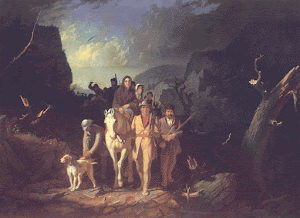



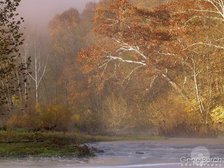








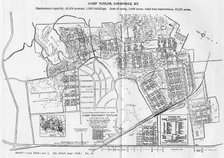
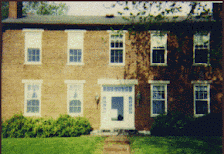

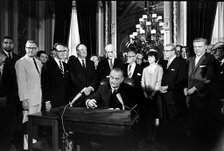

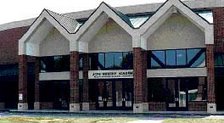
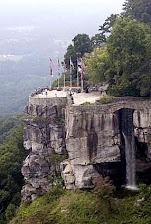

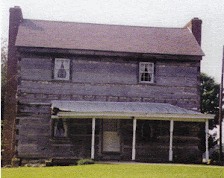
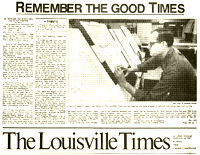
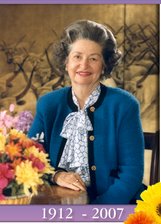
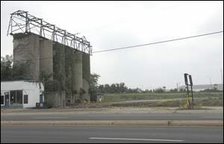
No comments:
Post a Comment